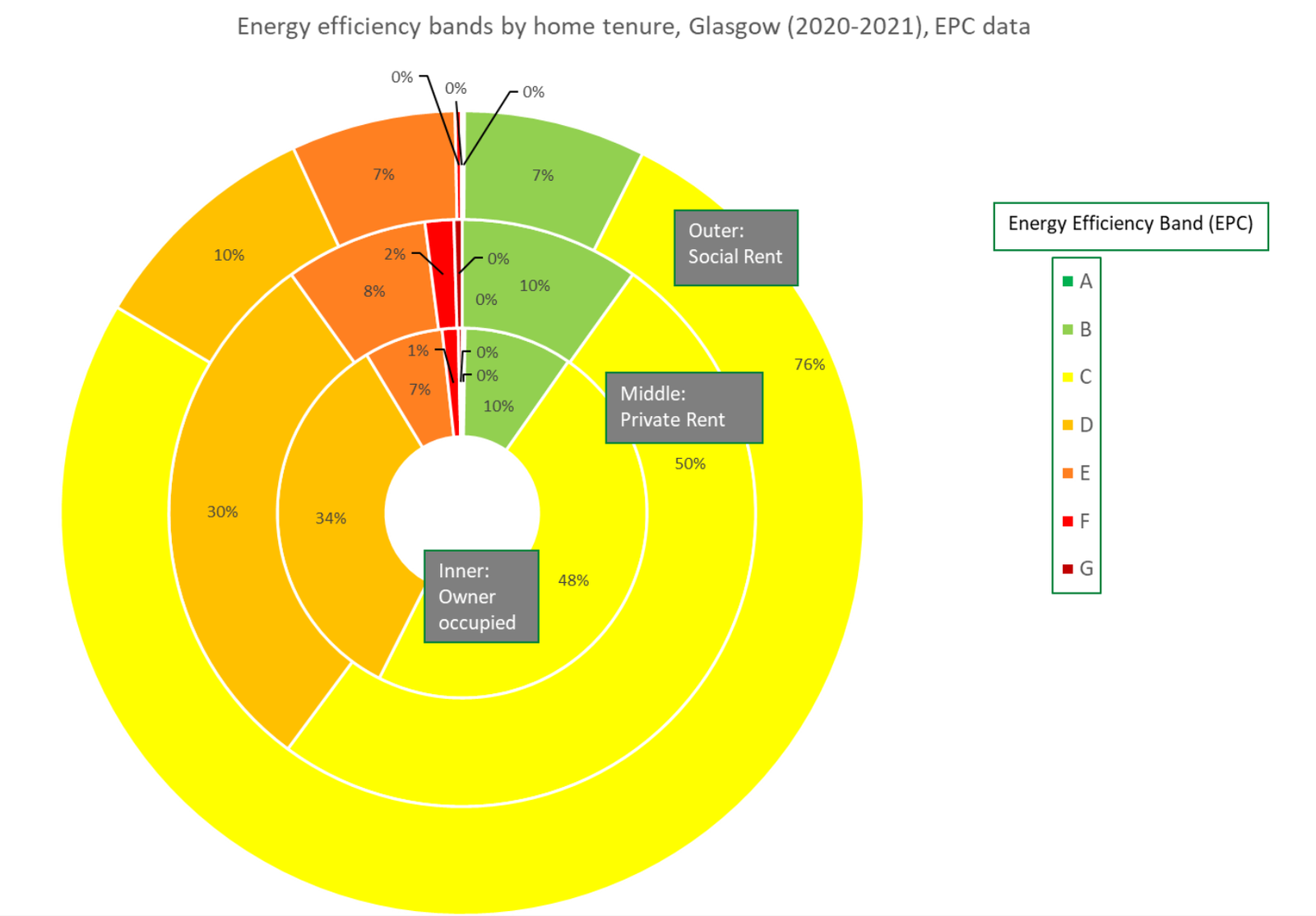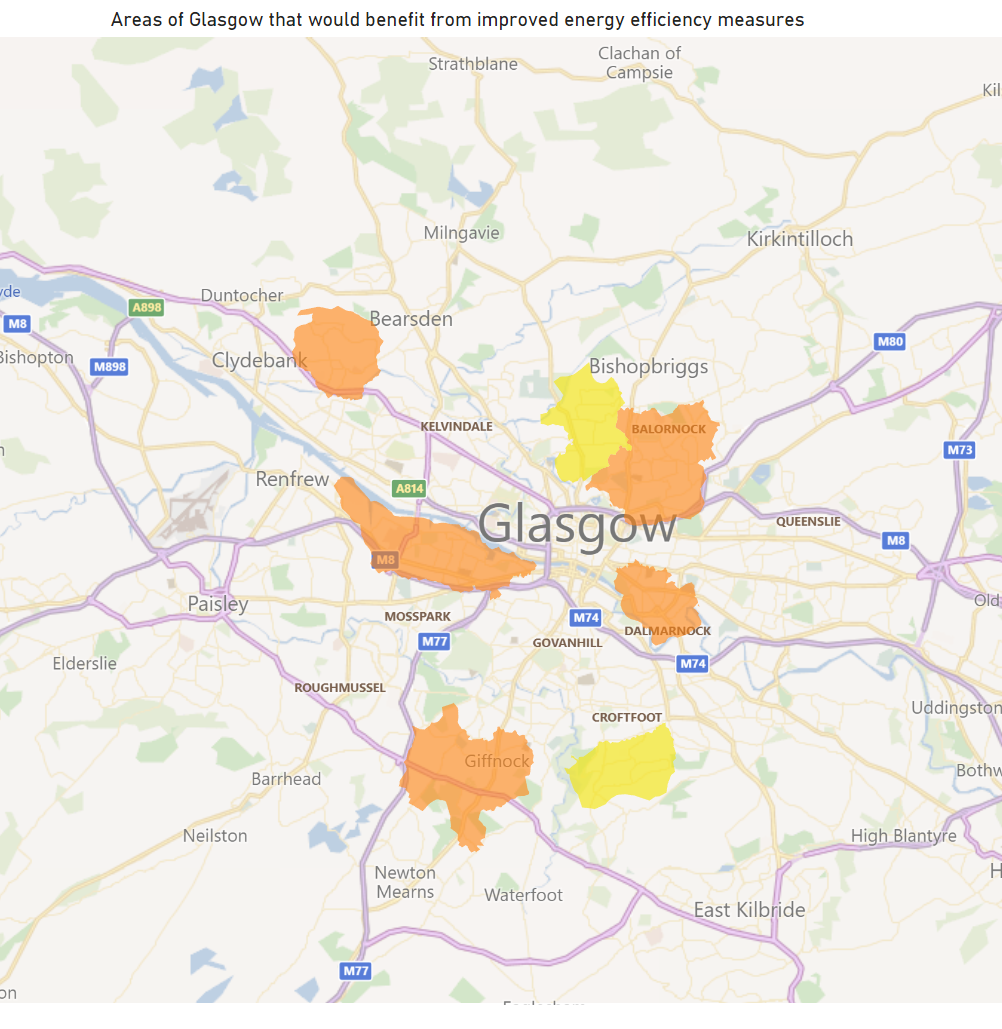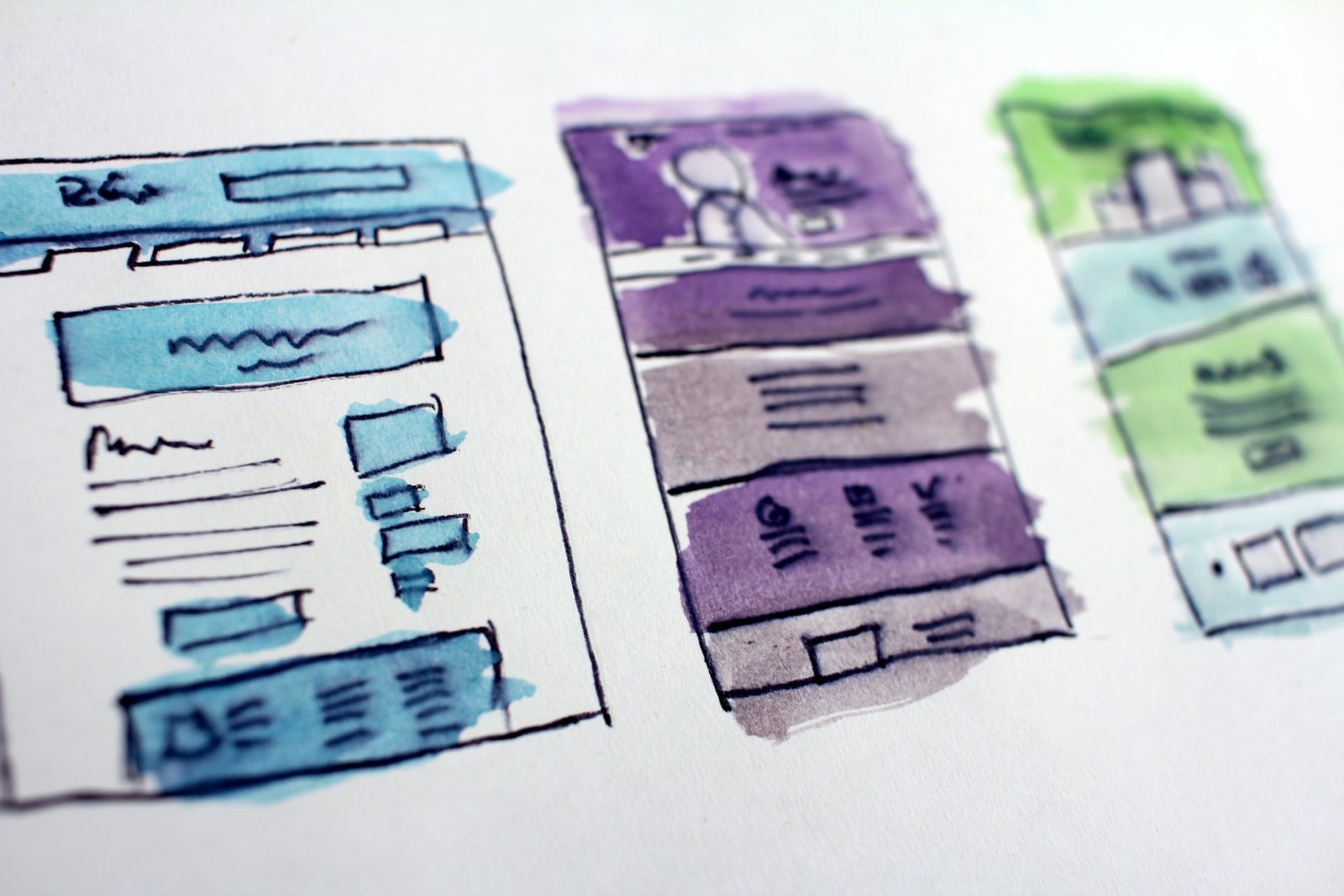Learner Projects
Fuel Poverty Project Spotlight
Research and data analysis of fuel poverty in the UK
Data Accelerator Course, Cohort January - May 2022

Learner Projects
Research and data analysis of fuel poverty in the UK
Data Accelerator Course, Cohort January - May 2022


This project investigates fuel poverty in the UK with its focus being placed on Glasgow in particular.
Fuel poverty has been effected recently by an increase in energy price cap which have had an immediate impact on energy bills and cost of living.
The aim of the project was to observe the current status of fuel poverty and its contributing factors.
Data from different governmental organisations were searched, including the Office for National Statistics (ONS), the Scottish Index of Multiple Deprivation data (SIMD) as well as both Government Websites.
Fuel Poverty and Health
Fuel Poverty can lead to deaths during the winter due to homes being too cold.
Fuel Poverty and the COVID-19 Pandemic
As people were forced to stay at home more, their energy usage increased and thus their bills were higher.
Fuel Poverty in Scotland
Fuel Poverty in Scotland varies from area to area with the Highlands and Islands being the worst affected.
Fuel Poverty in Glasgow
Fuel Poverty in Glasgow follows the trend for the rest of Scotland with 25% of people being in fuel poverty.
The main question at the focus of this study was: fuel poverty and its contributing factors. Although fuel poverty has been extensively looked into before, due to the recent energy price cap rise and its immediate impact on energy bills and cost of living, the report aims to present more recent information on the current status of this issue.
Download full report here
Low income earners will be the most affected group by the increase in UK energy prices. Those on low income (60% median UK income) are already in fuel poverty (10% - red line) following the April 2022 energy cap increase.
In October 2022, assuming a further energy cap increase of £600, the proportion of income spent on energy bills will rise to 18.4%.

The chart shows the percentage of energy efficiency bands for each of the 3 types of home tenure in Glasgow.
The inner circle represents owner occupied properties, the middle circle - private rented properties, and the outer circle - social rented housing. Most properties across all 3 home tenures have an EE band C.

Several areas of Glasgow would benefit from home improvements to their EE ratings to help low income households save money.
The data was selected from the percentage of the population who are >=25% income deprived AND have <=80% energy efficiency ratings on their homes (2020-2021 data).
The main conclusion of the report is that there is an increase in fuel poverty in Glasgow due to the price of energy increasing significantly
"Being exposed to different collaboration and communication tools such as Miro and Slack prior to commencing the project enabled us, as a group, to work remotely without any major issues. Although our group was relatively free to take the project in any direction we consider appropriate, support was always a message away."
The project utilised Power BI to bring interactive data visualisations and make data more accessible to all
"During the PDA, what I enjoyed the most is working on data analysing and visualisation with Python and Power BI for the fuel poverty project. It was also so helpful collaborating with my team and mentor. I’ve learned so much and am more confident in pursuing a career in data analysis."
"Gaining hands-on experience as analysts within a data team working on real-world problems is crucial to ultimately understand what a data analyst does, and Code Division provided just that with this project. Working on such a hot topic that is fuel poverty offered me an excellent opportunity to put in practice essential data science skills - such as visualisation and storytelling by creating PowerBI dashboards and writing the report for publication - as well as team leadership skills."
"After a long career break this course and the project have been a great confidence boost for me. I really enjoyed collaborating in a team again and I was also able to use all my organisational skills to help produce our report on Fuel Poverty."
At Code Division we help our learners build a portfolio of their work to showcase their skills and achievements.
We challenge our learners to work on socially-responsible topics, which shed light on current issues and bring them into focus using data.
